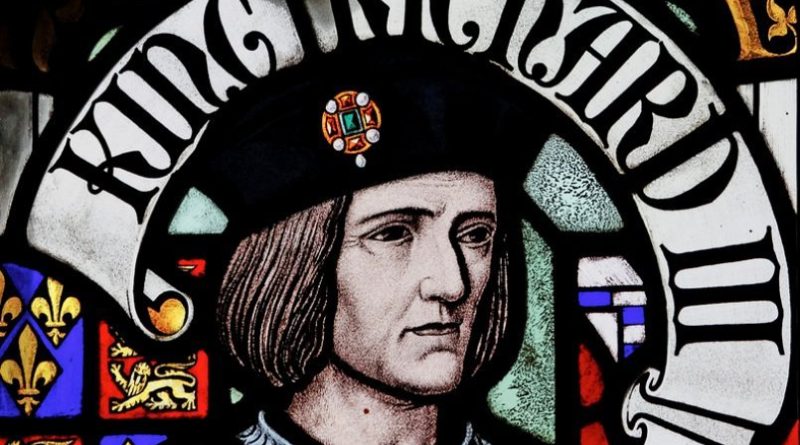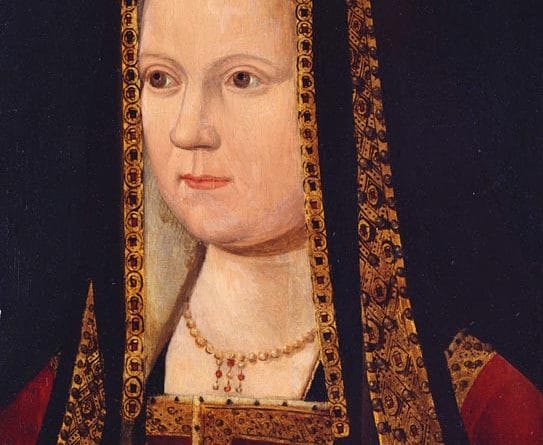Did Richard III plan to marry Elizabeth of York?
Following the death of Queen Anne [Anne Neville] rumours began about the cause of her death and the intentions of King Richard III. The first rumour was that Anne had been poisoned, possibly by Richard, or on his orders. Secondly a rumour spread that Richard III planned to marry Elizabeth of York, his niece.
Evidence relating to this rumour is somewhat limited, making it one of the mysteries of the period. A Primary Source is said to have existed in the form of a letter from Elizabeth to John Mowbray, Duke of York. That letter is said to hint at a romantic involvement or intent. However, the letter is lost and, barring a note by an antiquarian [below], its contents cannot be verified. Other contemporary evidence does exist though, in the form of denials and proclamations.
Sedition
A proclamation regarding sedition was issued by King Richard III regarding ‘seditious and evil‘ rumours. He bemoans the ‘false and abominable language‘ used. The rumour, he states, has ‘mischievous intent’.
“‘And where it is soo that diverse sedicious and evil disposed personnes both in our citie of London and elleswher within this our realme, enforce themself daily to sowe sede of noise and disclaundre agaynest our persone… to abuse the multitude of our subgiettes and averte ther myndes from us, if they coude by any meane atteyne to that ther mischevous entent and purpose, some by setting up of billes, some by messages and sending furth of false and abhominable langage and lyes, some by bold and presumptuos opne spech and communicacion oon with othre, wherthurgh the innocent people whiche wold live in rest and peas and truly undre our obbeissance, as they oght to doo, bene gretely abused and oft tymes put in daungier of ther lives, landes and goodes… fromhensfurth as oft as they [all officers and loyal subjects] find any persone speking of us… othrewise than is according to honour, trouth and the peas and ristfulness of this our realme… they take and arrest the same person… [or] answere unto us at your extreme perill.'”
York House Books vol 1 pp. 359-60
Public perceptions
Whilst Richard himself issued proclamations that made his view clear, that was not how it was perceived by all observers. The Croyland Chronicle explains that many people thought Richard was intent on a marriage to Elizabeth of York. So too does it say that King Richard addressed the rumour at a Council meeting. But, it also suggests that some nobles on the King’s Council ‘knew otherwise‘.
Did Richard III plan to marry Elizabeth of York?
From the Croyland Chronicle
Oh God I why should we any longer dwell on this subject, multiplying our recital of things so distasteful, so numerous that they can hardly be reckoned, and so pernicious in their example, that we ought not so much as suggest them to the minds of the perfidious. So too, with many other things which are not written in this book, and of which I grieve to speak; although the fact ought not to be concealed that, during this feast of the Nativity, far too much attention was given to dancing and gaiety, and vain changes of apparel presented to queen Anne and the lady Elizabeth, the eldest daughter of the late king, being of similar colour and shape; a thing that caused the people to murmur and the nobles and prelates greatly to wonder thereat; while it was said by many that the king was bent, either on the anticipated death of the queen taking place, or else, by means of a divorce, for which he supposed he had quite sufficient grounds, on contracting a marriage with the said Elizabeth. For it appeared that in no other way could his kingly power be established, or the hopes of his rival be put an end to.
In the course of a few days after this, the queen fell extremely sick, and her illness was supposed to have increased still more and more, because the king entirely shunned her bed, declaring that it was by the advice of his physicians that he did so. Why enlarge ? About the middle of the following month, upon the day of the great eclipse of the sun, which then took place, queen Anne, before-named, departed this life, and was buried at Westminster, with no less honours than befitted the interment of a queen.
The king’s purpose and intention of contracting a marriage with his niece Elizabeth being mentioned to some who were opposed thereto, the king was obliged, having called a council together, to excuse himself with many words and to assert that such a thing had never once entered his mind. There were some persons, however, present at that same council, who very well knew the contrary. Those in especial who were unwilling that this marriage should take place, and to whose opinions the king hardly ever dared offer any opposition, were Sir Richard Ratclyffe and William Catesby, Esquire of his body.
Richard ‘Followed their advice…’
The Croyland Chronicler seems to be convinced. Marriage, the chronicle claims, was Richard’s ‘intended purpose’. The King only stopped pursuing his plan because of the arguments against such a marriage made by nobles and bishops. Croyland lists several reasons why he ‘followed their advice‘.
For by these persons the king was told to his face that if he did not abandon his intended purpose, and that, too, before the mayor and commons of the city of London, opposition would not be offered to him by merely the warnings of the voice; for all the people of the north, in whom he placed the greatest reliance, would rise in rebellion against him, and impute to him the death of the queen, the daughter and one of the heirs of the earl of Warwick, through whom he had first gained his present high position; in order that he might, to the extreme abhorrence of the Almighty, gratify an incestuous passion for his said niece. Besides this, they brought to him more than twelve Doctors of Divinity, who asserted that the pope could grant no dispensation in the case of such a degree of consanguinity. It was supposed by many, that these men, and others like them, threw so many impediments in the way, for fear lest, if the said Elizabeth should attain the rank of queen, it might at some time be in her power to avenge upon them the death of her uncle, earl Antony, and her brother Richard, they having been the king’s especial advisers in those matters. The king, accordingly, followed their advice a little before Easter, in presence of the mayor and citizens of London, in the great hall of the Hospital of Saint John, by making the said denial in a loud and distinct voice; more, however, as many supposed, to suit the wishes of those who advised him to that effect, than in conformity with his own.
From the Croyland Chronicle
Richard’s plans to marry his niece. Conflicting evidence?
On one hand we have the record of Richard issuing proclamations in York [And other places]. The rumour was to be treated as sedition. Typically that would carry a consequence for anyone found to be guilty. So officially the story of Richard wishing to marry his niece was simply mischievous gossip. But the Croyland Chronicle hints at a reason why such a statement may need to be made. If Richard was simply following the advice of his advisors, he would have to act to prevent news of his wishes being spread.
The issue, of course, is that we do not know who provided the information to the chronicler, nor whether that source had the ear of King Richard III. It appears to be a leap of faith as to whether or not Richard was infuriated at damaging slurs, or having to backtrack for political reasons.
The lost letter of Elizabeth of York
A letter written by Elizabeth of York to the Duke of Norfolk is known to have been sent. It has since been lost. However, it was read by historians in the past. George Buck was a historian/ antiquarian. He made a note about the content of the letter.
When in the midst and more days of February [1485] were gone, the Lady Elizabeth, being very desirous to be married and, growing not only impatient of delays, but also suspicious of the [success], wrote a letter to Sir John Howard, Duke of Norfolk, intimating first therein [he was the] one in whom she most [trusted], because she knew the King her father much loved him, and that he was a very faithful servant unto him and to [Richard], and very loving and serviceable to King Edward’s children. First, she thanked him for his many courtesies and friendly [offices, and] then she prayed him, as before, to be a mediator for her in the case of [the marriage] to the King, who, as she wrote, was her only joy and maker in [this] world, and that she was his in heart and thoughts, in [body] and in all. And then she intimated that the better half of Fe[bruary] was passed, and that she feared the Queen would nev[er die].
George Buck
Buck on Elizabeth of York and a potential marriage to Richard
Without seeing the actual letter is is impossible to know how accurate Buck’s notes are. He certainly seems to be of the opinion that Elizabeth of York desired a marriage to King Richard III. If that is true, it is not clear from the notes that it was a reciprocated view. Elizabeth may have had a desire not shared by her uncle. Similarly, Buck may have misinterpreted the text. Could Elizabeth have been asking the Duke of Norfolk to ask the King’s permission to marry somebody else? Equally, Buck’s note may be accurate in terms of Elizabeth’s desires and it may have been the case that Richard shared the view. It simply isn’t known from the available evidence.
What do you think?
Do you think that Richard III planned to marry his niece, Elizabeth of York? Feel free to add your views in the comments. Or any additional sources.



